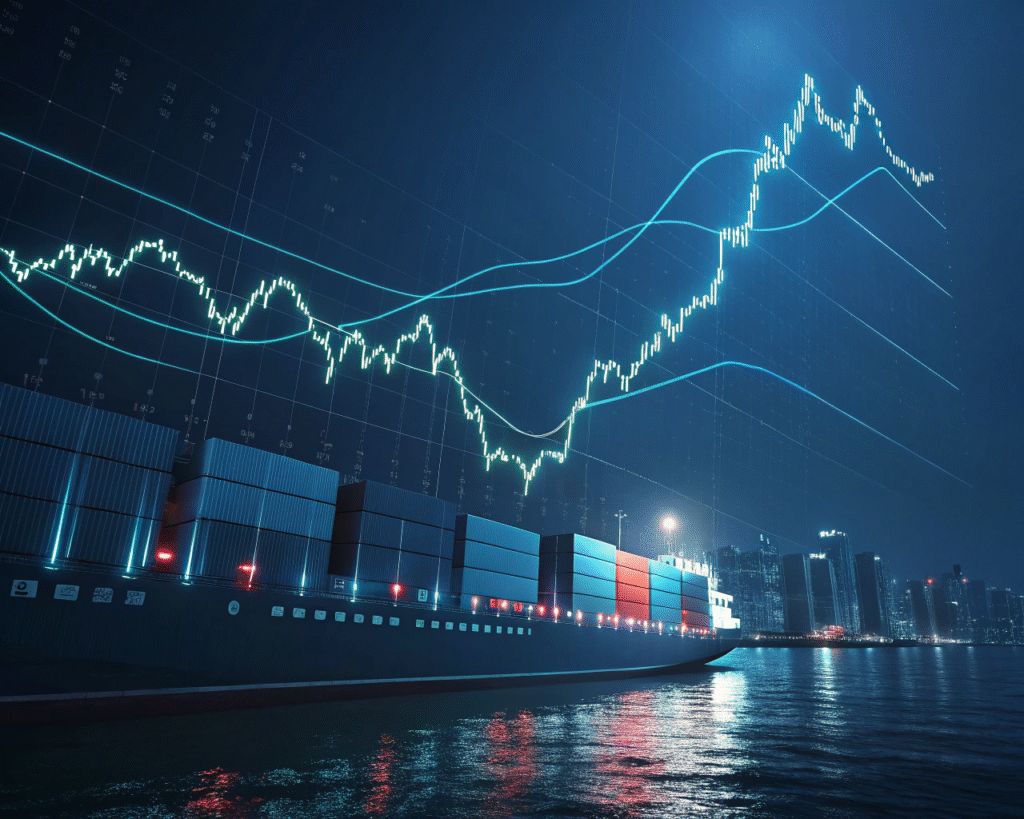
Understanding free margin is fundamental for every forex trader aiming to manage risk efficiently, preserve capital, and maintain control over their trading account. In this guide, we break down the concept, show how it fits within broader account mechanics, and offer practical insights tailored to traders at every level.
What Is Free Margin in Forex?
Free margin refers to the amount of equity in a trader’s account that is not tied up in open positions and is available to open new trades or absorb losses. It acts as a cushion between your account balance and potential margin calls.
In simple terms:
Free Margin = Equity – Used Margin
Where:
- Equity is the total value of your trading account (balance + floating P&L)
- Used Margin is the amount allocated to maintain open positions
Free Margin vs. Used Margin vs. Equity
Understanding how free margin fits into the larger picture requires clarity on how it interacts with other account elements.
| Term | Definition |
| Equity | Account balance plus unrealized profit/loss from open positions |
| Used Margin | The capital locked as collateral for active trades |
| Free Margin | Remaining equity available for new positions or drawdowns |
This interplay directly impacts trading capacity and the potential for forced liquidations in volatile markets.
Why Free Margin Matters for Traders
Free margin is not just a technical number—it’s a lifeline. It determines your capacity to hold existing trades and your ability to open new ones. Low free margin can signal overexposure, while healthy levels allow for flexibility and risk control.
Strategic benefits of maintaining sufficient free margin:
- Prevents premature margin calls
- Supports diversified trade setups
- Enhances resilience in volatile market conditions
How to Calculate Free Margin
Formula and Explanation
The standard formula is:
Free Margin = Equity – Used Margin
Free Margin Calculation with Open Positions
Assume:
- Balance: $10,000
- Open Position requiring $2,000 margin
- Unrealized Profit: $500
Then:
- Equity = $10,000 + $500 = $10,500
- Free Margin = $10,500 – $2,000 = $8,500
Example: No Open Positions vs. Active Trades
| Scenario | Balance | Used Margin | Equity | Free Margin |
| No Open Trades | $10,000 | $0 | $10,000 | $10,000 |
| One Active Trade (+$500) | $10,000 | $2,000 | $10,500 | $8,500 |
| One Active Trade (–$500) | $10,000 | $2,000 | $9,500 | $7,500 |
Safe Free Margin Levels in Forex
Optimal Margin Ratio for Different Strategies
Each trading style demands a different margin buffer:
| Trading Style | Recommended Free Margin Ratio |
| Scalping | 80%+ |
| Swing Trading | 50–70% |
| Long-Term | 30–50% |
How to Monitor Margin Levels Effectively
Regular monitoring through your trading platform is essential. Many brokers provide margin level alerts to warn traders of approaching danger zones.
What Happens If Free Margin Falls to Zero?
Margin Calls and Stop Out Triggers
When free margin reaches zero:
- Your broker issues a margin call
- If equity continues to drop, your positions may be automatically closed (stop-out level)
Real Consequences and How to Avoid Them
Failing to manage free margin can lead to:
- Forced liquidation of positions
- Irrecoverable losses
- Reduced trading capital
Avoid this by:
- Using stop-loss orders
- Avoiding over-leveraging
- Tracking drawdowns closely
Tips to Maintain a Healthy Free Margin Buffer
Leverage Management Best Practices
- Use leverage responsibly; higher leverage reduces free margin faster
- Opt for lower leverage for longer-term stability
Position Sizing and Capital Allocation
- Trade smaller lot sizes relative to your balance
- Diversify risk across instruments and timeframes
Free Margin and Account Types
Impact on Standard, ECN, and Cent Accounts
| Account Type | Margin Impact |
| Standard | Requires moderate margin; suitable for mid-size trades |
| ECN | Typically lower spreads but requires higher margin precision |
| Cent | Smaller trade sizes, ideal for testing and learning margin dynamics |
Your choice of account should reflect your capital, strategy, and risk tolerance.
Conclusion: Mastering Free Margin Control
Free margin is more than a calculation—it’s a dynamic metric that directly influences your trading decisions and risk exposure. By mastering its mechanics, traders can protect capital, reduce stress, and trade with greater clarity. Remember, consistently monitoring free margin is a hallmark of disciplined trading.
FAQs: Is Free Margin Meaning Options in Forex
What is the meaning of free margin in forex?
Free margin is the portion of your trading account equity not tied up in current trades and available for new positions or absorbing drawdowns.
How is free margin calculated?
It is calculated as: Equity – Used Margin.
Can you trade with zero free margin?
Technically no—if free margin hits zero, your broker may trigger a margin call or stop-out to prevent further losses.
What affects the free margin level?
Factors include account equity, open positions, leverage, and market volatility.
Is free margin the same across brokers?
The concept is the same, but margin requirements and stop-out levels may vary between brokers. Always check your broker’s terms.
